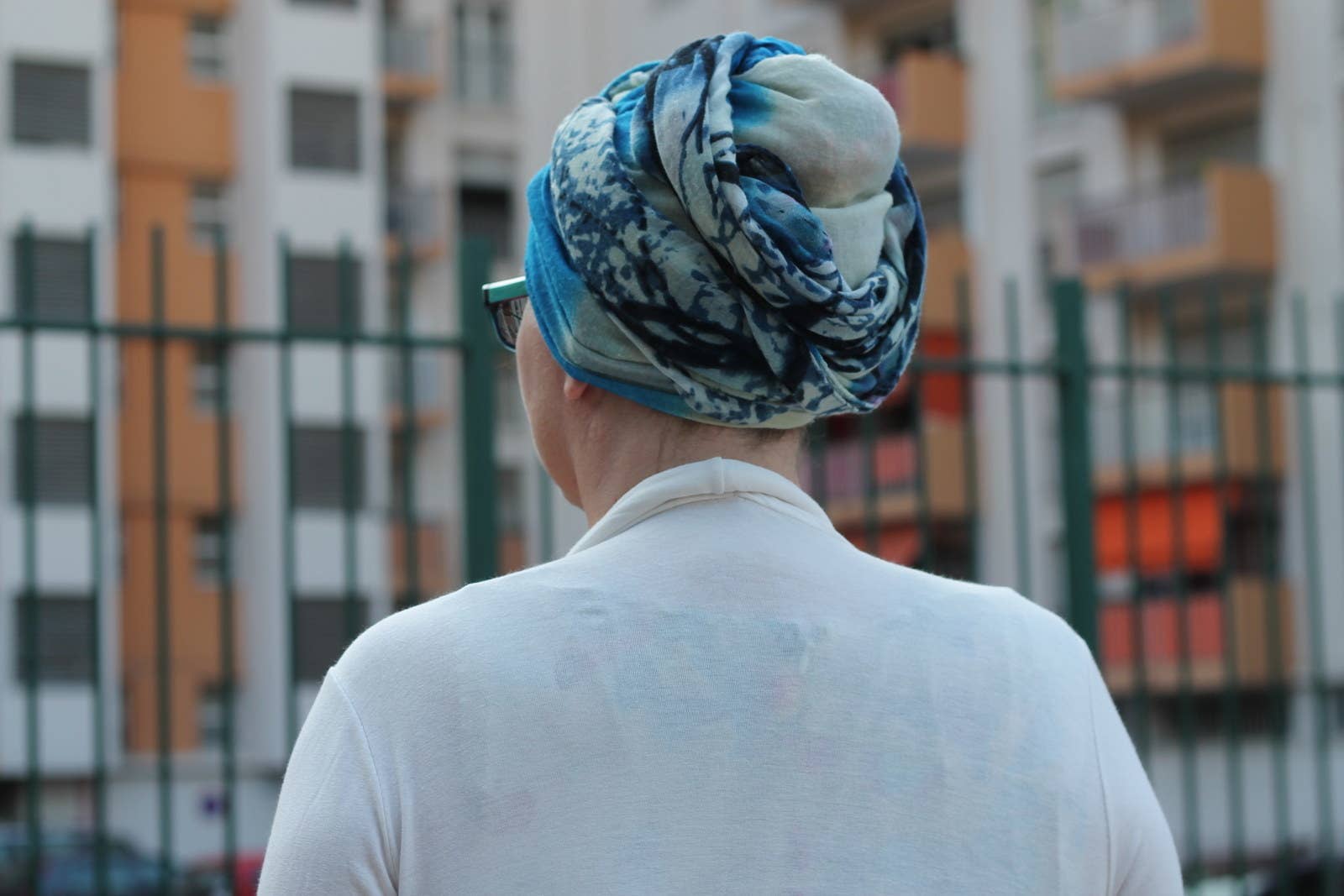
Beneath the long shadows cast by the tower blocks and away from the Promenade des Anglais lining the cobalt blue Mediterranean sea, a grandmother in a floral dress and headwrap pushes a buggy through the public park. Mothers sit on the park benches, chatting with their neighbours over small picnics, while their children – Arab, black, and white – play football or whizz by on scooters. The shutters of the discount halal butchers, local hamam, and tailors displaying wedding dresses are down, and a young woman in a jilbab, wearing drainpipe jeans and Nike Air Max trainers, sits opposite at a bus shelter. It is the neighbourhood of L’Ariane.
Life in this Cote d’Azur suburb – characterised by its rows of social housing, sandwiched between the Paillon river and the hills of Nice – has been tough for its residents. Anyone you speak to here says there is tension. Memories of the Bastille Day attacks earlier this year are fresh, and signs of mourning line the promenade. A makeshift shrine with handwritten notes and candles with the wicks burned-out mark where a victim had once worked in the Old Town.
“Since the terrorist attacks, in Nice, in Paris – Charlie Hebdo and the Bataclan – I feel people are generally more worried about the Muslim community,” says Fatima, 34, who sits on the concrete steps of an amphitheatre in the playground, watching over her two young children. Like the other women BuzzFeed News spoke to, she did not give her surname.
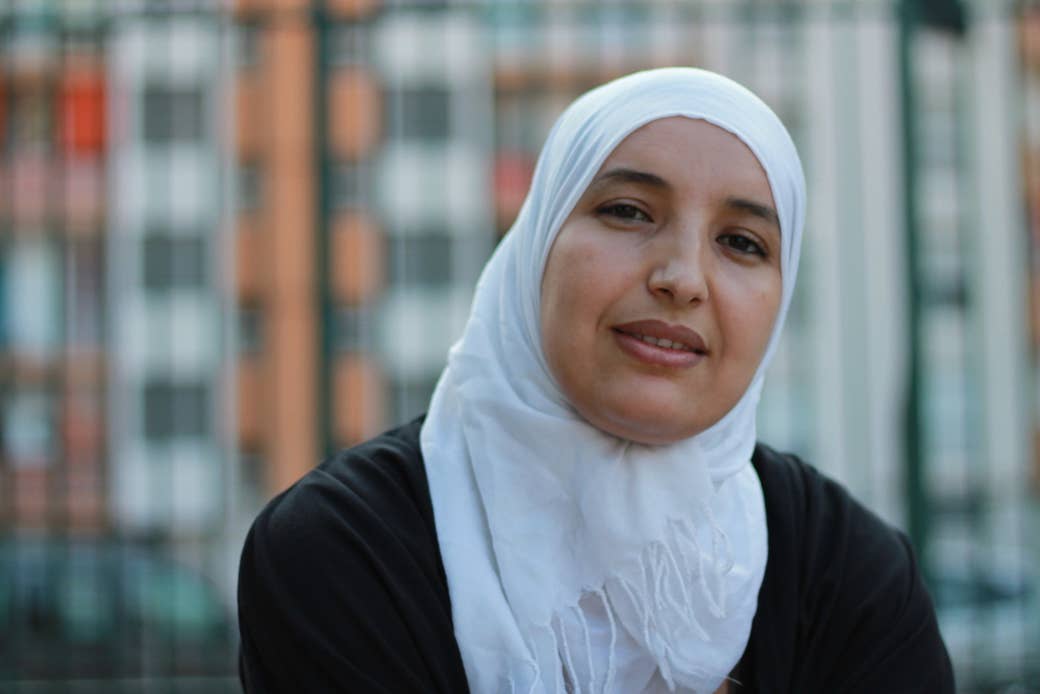
“But I don’t know if it’s a shared paranoia of the two sides,” says Fatima, who has lived for nine years in L’Ariane, an area that has long been the backdrop of political discussions and a focal point for the press on anything concerning France’s Muslim community.
Despite the way the area is perceived from the outside – a district in northeast Nice with a large migrant and Muslim population, and a few kilometres from the Abattoirs neighbourhood where Nice attacker Mohamed Lahouaiej Bouhlel lived – L’Ariane has a communal feel. People know each other, stop and speak to each other in the park. Young women listen to music together with the phone loudspeaker on. Around the corner, men sit outside a café drinking coffee, while others clear empty fruit crates from the market and a group of teenage boys perch on gates, passing around a makeshift shisha pipe.
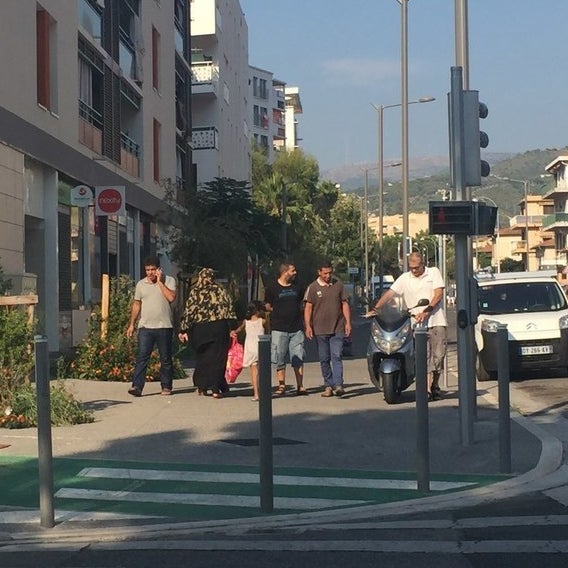
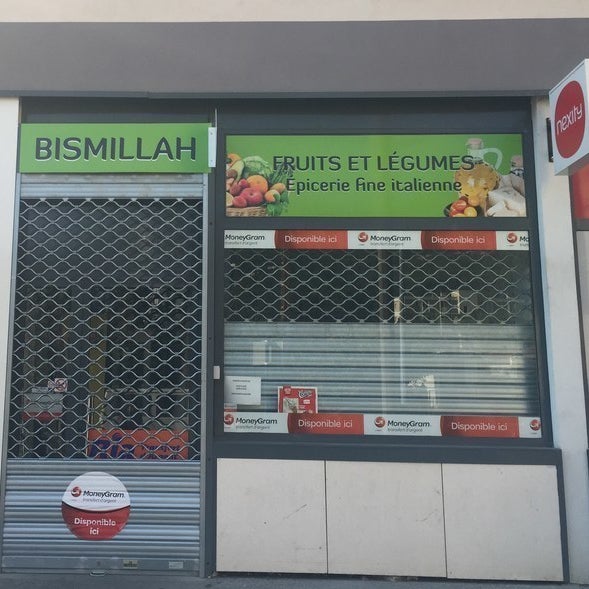
But Fatima and many other Muslims feel their community is being unfairly blamed for the Bastille Day attack that saw 80 people die. They worry discrimination and social divisions are growing – epitomised by the heated debate on the burkini, the swimwear of choice for some Muslim women.
The issue with burkinis was one of national security, according to the mayor of Nice. In more than 30 French beach towns, notices were printed on white paper and taped to boardings warning bathers against wearing “ostentatious” religious dress. Images of a middle-aged woman forced to remove her top by armed police officers made headlines around the world. Women sat on benches on the promenade as their children played on the beach. Column inches were filled and radio phone-in shows were dedicated to the issue.
“Maybe Muslim women have a responsibility in this climate of worries,” Fatima says, "but the tension is nourished by the media, and we always have this soundtrack speaking about the hijab and our community. It’s always this talk.
“I don’t understand why the problem is now? The burkini and hijab will always be a reality."
Fatima, who works at a middle school as an education assistant, doesn’t wear her hijab while she is working and says she doesn’t understand why Muslim women are the focus whenever the situation in the country becomes tense. “I don’t understand – I respect the laws," she says. When I work I never put my hijab on. For me I’m a republican, for me it’s normal and I never want to transgress the law.”
Although the ban in Nice was suspended after judges in the country’s highest administrative court said the terror attack gave insufficient grounds to justify such a ban, local women fear the effects of it may linger. As the summer holidays draw to an end, and school term begins, they worry it’ll only be a matter of time until the next controversy erupts with elections looming.
“Women feel attacked by this discussion,” Fatima says. "Maybe it’s not real, but it’s very important people speak together, Muslims and non-Muslim, to have this debate, this conversation, to understand each other."
Safia, who's from Nice and converted to Islam four years ago, walks through the tree-lined park past a teenager teaching younger children dance moves. She joins the conversation and says the way Muslim women in France are treated is “paternalistic”.
“It’s as if women are children and they don’t know what they do,” she says. Although Safia says she has not faced any anti-Muslim attacks, she does get looks. She also regularly receives comments like, “Madame, we are in a secular state.”
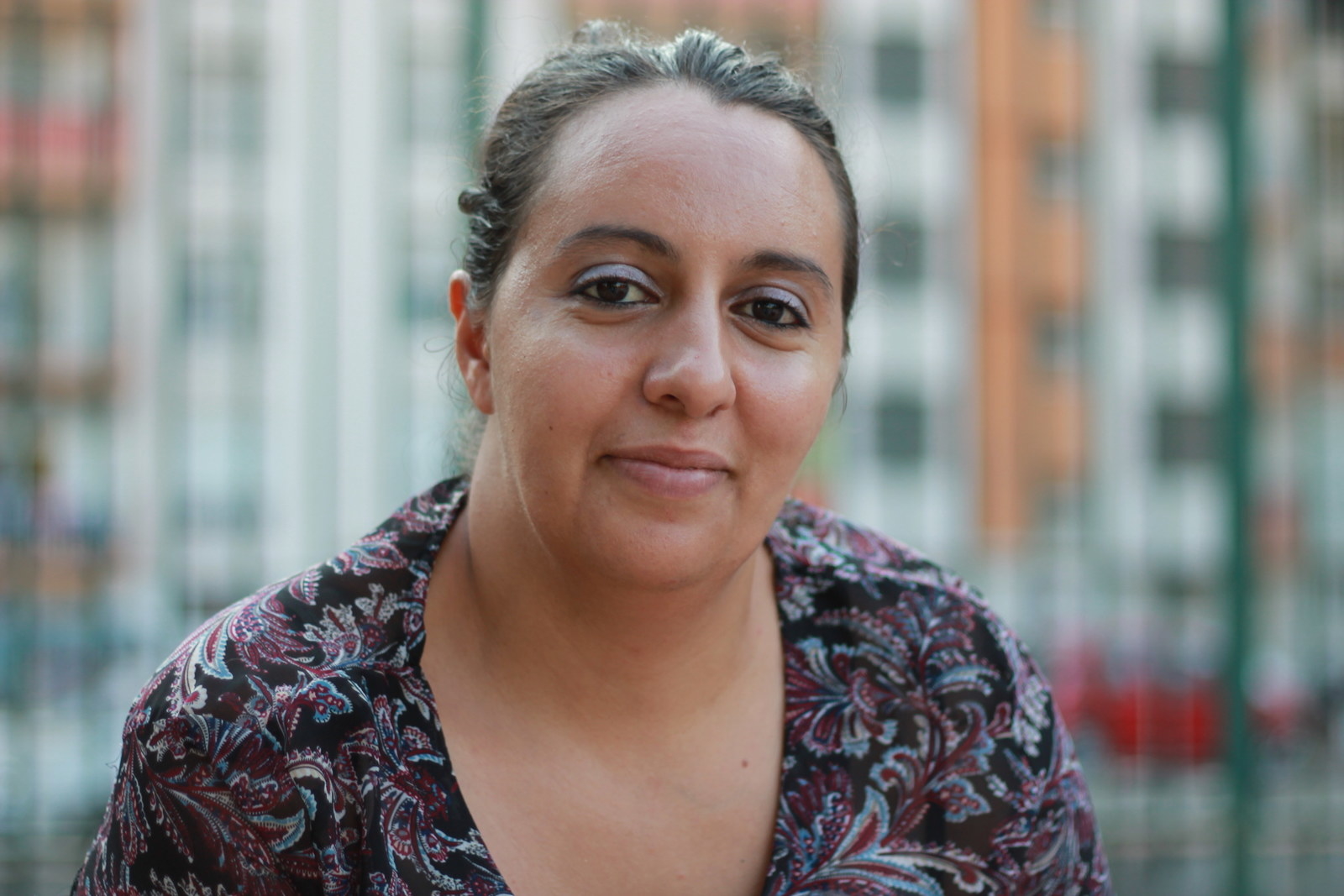
Malika, 33, from L’Ariane, shares these concerns. “Since the terrorist attacks, politicians are speaking about the hijab, but I don’t understand – why now?”
The mother of four is looking for work but is finding it difficult. Malika doesn’t wear hijab – she wore it for one month three years ago but felt uncomfortable with how others saw her and says “everyone has an opinion about it”. When she applies for jobs, she faces discrimination: Prospective employers can see she is of North African heritage, and she's written off when they discover she is from L’Ariane, she says.
The area's inhabitants say it is treated like a ghetto and that people from the rest of Nice make automatic judgments if you say you are from the area. It’s marked as a ZUS – a sensitive urban zone – by authorities, with nearly 45% living below a key measurement of poverty based on household income, according to official statistics. Around 25% of homes in the area are single-parent households.
In addition, Malika also fears increasing Islamophobia and worries where her daughters will grow up. “I’m afraid of the future and I have heard a lot of stories online about attacks on Muslims," she says. "I heard one day, in another building, a Muslim family found pork in front of their door."
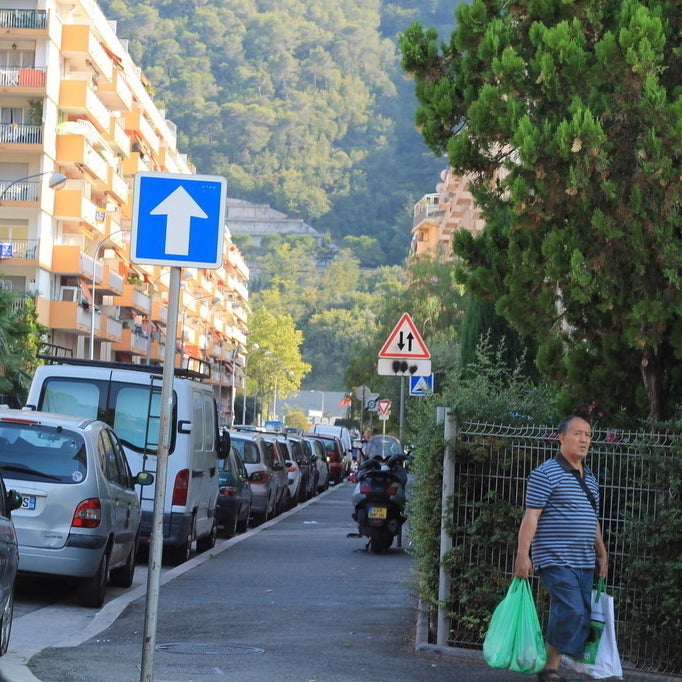

It is not only in L’Ariane where this fear is growing. “It is getting more and more difficult for Muslim women to live in France, at least in some parts of it,” says Sarah, 24, who is with Etudiants Musulmans de France, the French association of Muslim students. “The biggest issue for Muslim women is they cannot wear what they want in the workplace.”
She says that not only is it forbidden for women to wear the hijab while working in the public sector, but most private companies also prevent their employees from wearing it, by threatening to fire them – or do not hire women wearing headscarves in the first place.
Sarah says there is not much help for Muslim women in France, which, along with Germany, is home to Europe’s largest Muslim minority community. “Most of them feel so clueless they just give in and obey the unfair orders," Sarah says, adding: “There is just the organisation called the Collective Against Islamophobia (CCIF), which is qualified and powerful enough to help them. Yet they have so many requests they often cannot deal with them all."
Lamia, a fourth-year student law student, visited Nice in the second week of August for her honeymoon. On her final night there, she says, she was attacked in a restaurant by a woman. No one helped her. “We actually feel lonely," she says. "Although we feel the support of other Muslim women in the world – in Canada and the UK – in France we feel lonely.
“And the burkini is not the problem. The problem is Islamophobia. Now I can’t go out after sundown as I am afraid what people can do.
“I am very disappointed in France and am doing everything I can do to go to Canada. I can’t support any more how France treats Muslim women."
However, Lina, a teacher, is optimistic about the message sent out by the burkini ban being overturned in resort towns such as Cannes and Nice. "People in other towns definitely will have hope," she says. "And not only about regarding this issue. It is comforting to know that this ruling will also make sure these type of bylaws will not invade public spaces. At least for some time."
